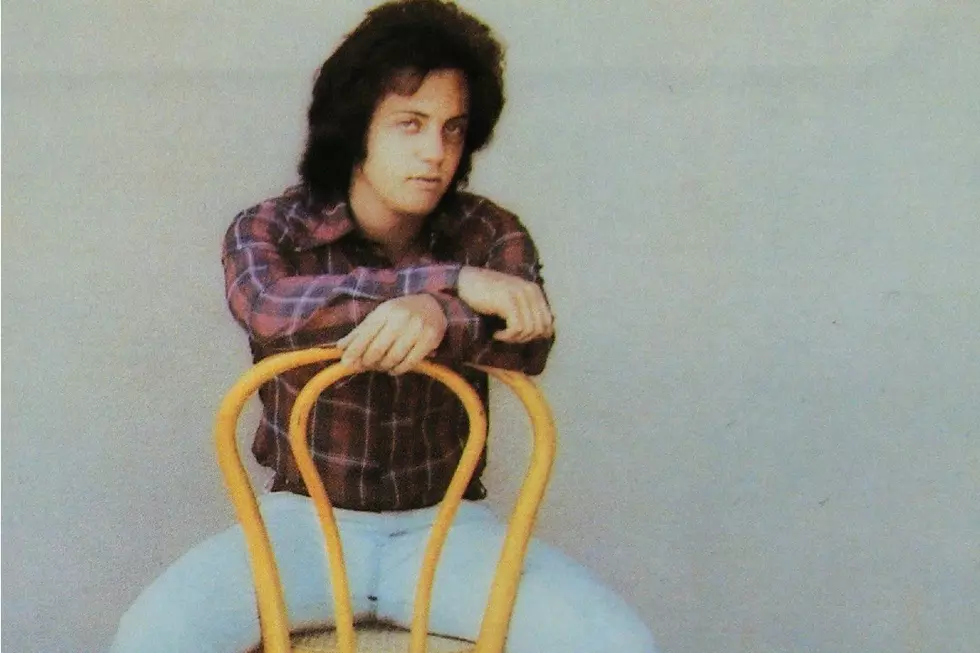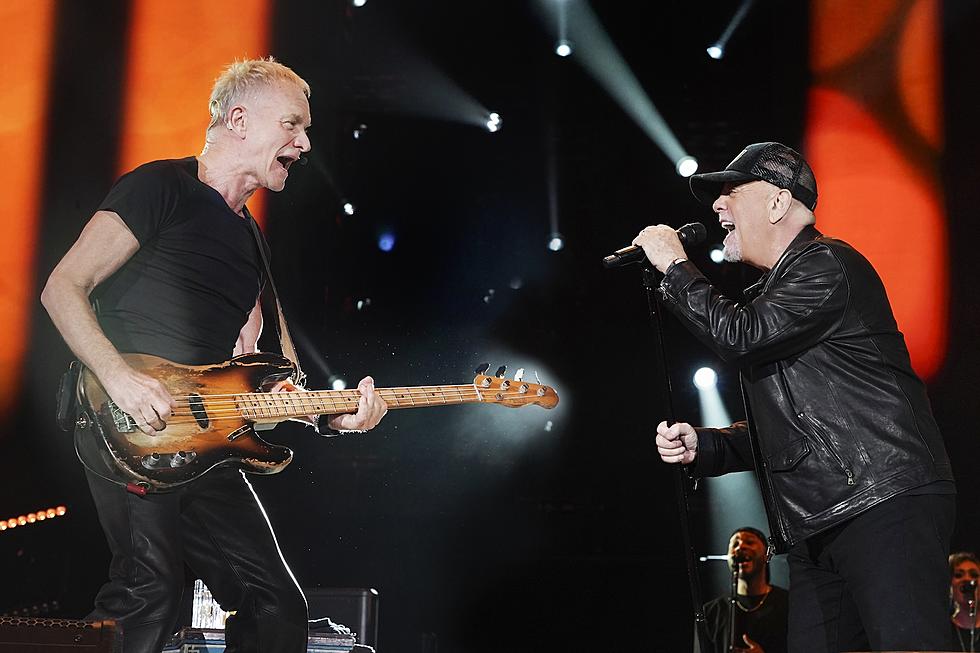
How Billy Joel Tried to Find His Feet With ‘Streetlife Serenade’
At this point, Billy Joel had one hit album under his belt (1973's Piano Man) and a whole bunch of platinum records in his future (starting with 1977's The Stranger). First, though, he had to make it through a frustrating few years that found him adjusting to life as a touring recording artist while trying to solidify his sound – a period that started with the Piano Man follow-up, Streetlife Serenade.
Released Oct. 11, 1974, Streetlife Serenade had a couple of things working against it off the bat. As Joel explained in a later interview, he fell victim to a number of factors that tend to make life difficult for young artists experiencing their first flush of success.
"I had been on the road playing in theaters and clubs, and opening up for other acts – I opened up for the Beach Boys during that time – and I didn't have a lot of time to write new material, but there was a lot of pressure to put out a new album after Piano Man," he recalled. "I just didn't have a lot of stuff. There's even two instrumentals. "
The record also reunited Joel with Piano Man producer Michael Stewart, a talented songwriter in his own right, but one whose preference for session players kept Joel from really digging in and developing an identifiable sound of his own. Surrounded by studio vets like bassist Larry Knechtel, guitarist Mike Deasy, and Elvis Presley drummer Ron Tutt, Joel couldn't help but sound a little anonymous and outmatched. Add that to the rushed material, and an increased experimentation with the Moog synth, and the result is a snapshot of an artist audibly finding his feet.
"He was used to working with them, and on that particular album I didn't want to go too far away from what he was used to, because he knows more about the production of records than I do," Joel told ZigZag in 1975. "I'm still a baby as far as production goes. I'm not ready to take over. ... I wanted to make this album a lot simpler. I wanted to keep it within the framework of a street-life kind of sound. I didn't want a big orchestral happening. It was kind of a concept album, not so much a concept from beginning to end, it's just the overall production and the feeling of the material – a street-life concept."
Streetlife Serenade is a transitional record, then, but not one without its charms. In fact, although the album would be somewhat cast to the margins after Joel's post-Stranger ascension, it probably contains more than its share of solid songs, given how hard he had to work in order to fill its 38-minute running time.
Listen to Billy Joel Perform 'Souvenir'
As Joel derisively noted, the album contains a pair of instrumentals, but they're interesting ones: the bucolic audio landscape "The Mexican Connection" closes the record on a fittingly searching note, and the sprightly "Root Beer Rag" served as both a showcase for Joel's melodic gifts and as the name of his long-running bi-annual newsletter. The album's opening numbers, "Streetlife Serenader" and "Los Angelenos," became concert staples that finally found a wider audience with 1981's Songs in the Attic live collection – and in those more confident concert recordings, you can hear what Joel was aiming for all along.
The album's "deeper" cuts don't lack for charm, either. "The Great Suburban Showdown" presents a picture of Joel the temporary West Coast transplant returning home for an uneventful visit with the folks ("Mom and Dad, me and you and the outdoor barbecue / Think I'm gonna hide out in my room"), eyeing the old neighborhood with the same jaundiced ennui that would thread through the narrative of many of his best records – and although he may not yet have grown into the world-weary pose he adopted for Streetlife cuts like this one or the hooker-crush ballad "Roberta," you can still hear flashes of the artist he'd become. "Souvenir," the record's penultimate track, would go on to serve as a bittersweet concert closer for years.
Like Piano Man, Streetlife Serenade boasts a distinct '70s California vibe, with banjo and pedal steel coloring the generally laid-back arrangements, but it's also a relatively eclectic affair, with cinematic flourishes and periodic bursts of the bluesy hard-rock bite that would later inform records like 1980's Glass Houses.
It also marks the spot where Joel first vented his ire regarding his occasionally tempestuous relationship with the press and the music industry. This album's single, the middling hit "The Entertainer," is a snide laundry list of rock star gripes (making small talk with suits, dealing with single edits, watching your fortunes rise and fall on the public's fickle whims) tucked behind an up-tempo pop arrangement.
Listen to Billy Joel Perform 'Streetlight Serenader'
"That was kind of the hit," Joel shrugged later. "So, the disc jockeys are saying, 'Okay, first he's the Piano Man and he's bitching about playing in a piano bar, and moaning about his life here. Now, he's got a successful record and he's bitching about being successful!" But as he pointed out in the weeks after the album's release, he didn't really mean it that way. "It's a put-down. Sticking a pin in the balloon of the performer," he insisted. "I'm a composer ... when the entertainer side gets blown out of proportion, if I started to believe all the things I hear about me, I'd be walking around going, 'Hey, I'm a star.'"
Neither "The Entertainer" nor Streetlife Serenade made much of an impact in terms of sales, both stalling just inside the Top 40 and keeping Joel's career in the same holding pattern he'd remain stuck in for 1976's self-produced Turnstiles, which fared even worse on the charts. Much of his work from this period was later swept aside during the frenzy that followed The Stranger, and the typically self-deprecating Joel has occasionally seemed to regard those less successful albums as the musical equivalent of embarrassing old pictures.
For the casual fan who may have missed out all these years, however, these songs are well worth a listen. Billy Joel may have been a work in progress at the time, but the difference between struggling artist and Grammy-winning star was more of an incremental shift than a quantum leap, and on Streetlife Serenade, you can hear those pieces starting to fall into place.
Top 40 Singer-songwriter Albums
More From Ultimate Classic Rock









